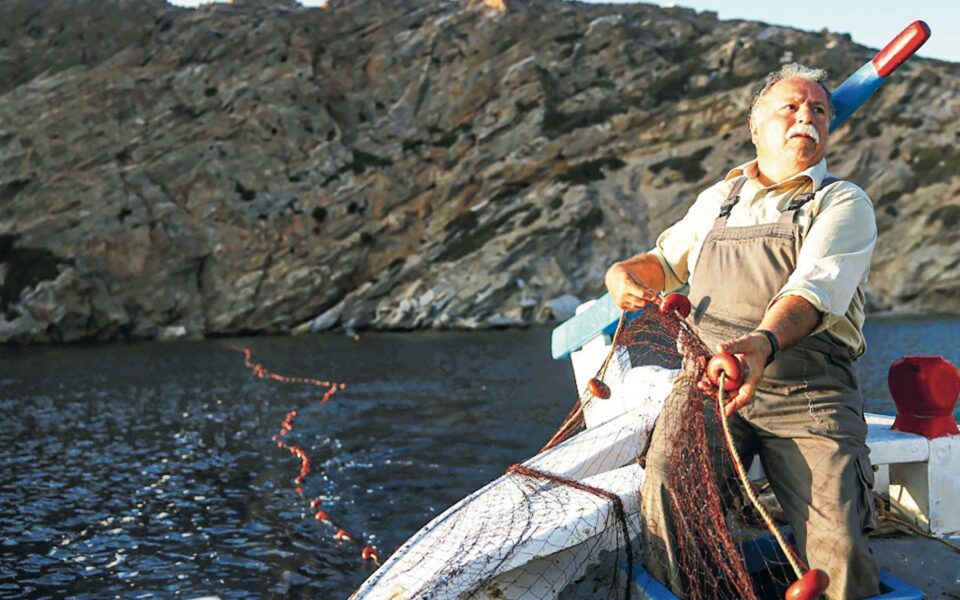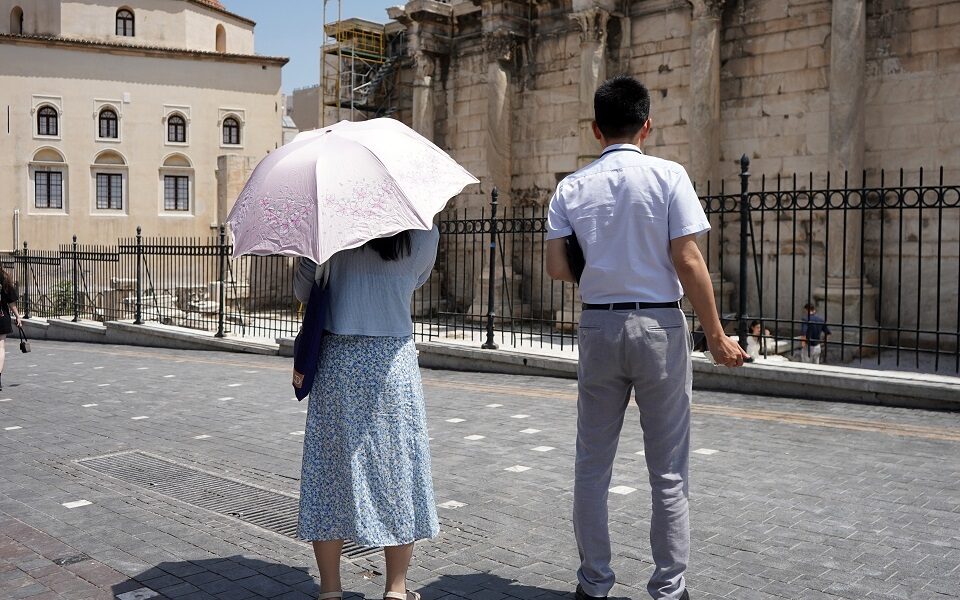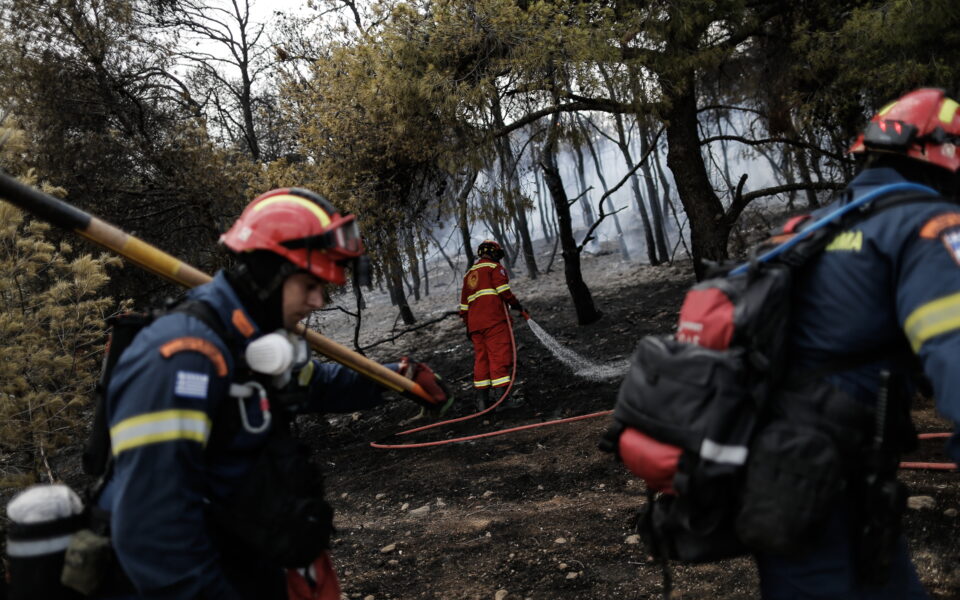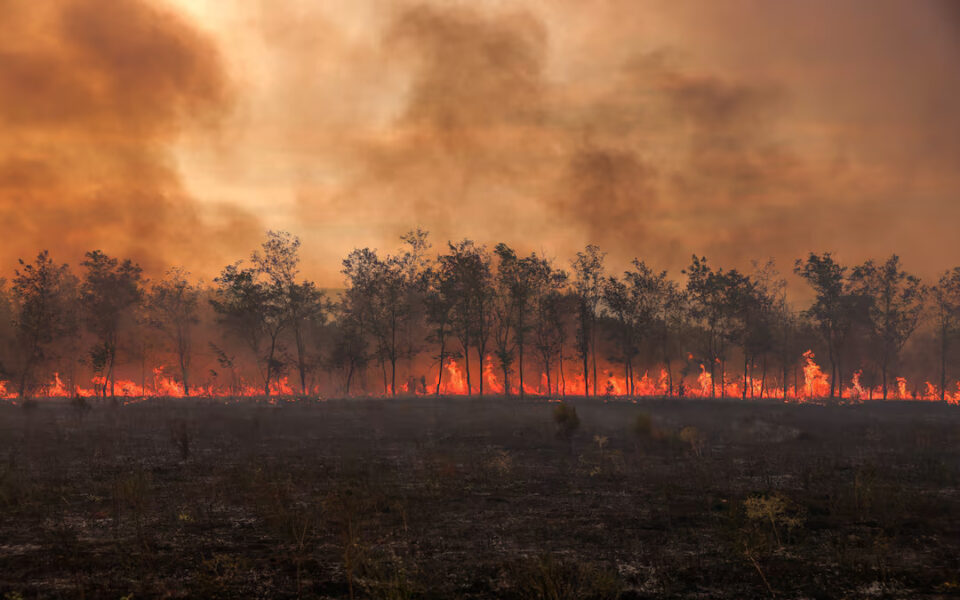Amorgos’ pioneering fishermen


Fishermen from the island of Amorgos, the easternmost of the Cyclades, are calling for the establishment of three marine areas where fishing will be banned, as well as a 1.5-nautical mile zone around the island where the ban would apply in April and May – the breeding months for most fish species.
Their proposal, which is aimed at the sustainability of fishing and the protection of the environment, now has the necessary scientific basis, as the Agricultural University of Athens has completed and submitted the necessary studies to the state.
The initiative of the island’s fishermen, named “Amorgorama,” started about a decade ago. Seeing the fish in their nets becoming increasingly scarce, they banded together and decided not to fish in April and May, but to use their boats during this period to clear inaccessible shores of rubbish. At the same time, they decided to propose to the Ministry of Rural Development that three marine areas off the island be turned into fish breeding grounds and nurseries, with specific restrictions.
Their proposal fell on deaf ears, as the ministry showed (and to some extent still shows) “intolerance” toward the introduction of fishing restrictions – until about a year ago, when the state was persuaded to adopt the initiative. Amorgorama was formalised by a memorandum of understanding between the Professional Fishing Association of Amorgos “Hozoviotissa,” the Municipality of Amorgos, the Rural Development and Environment ministries, two environmental organizations – the Cyclades Preservation Fund and Blue Marine Foundation – and the Agricultural University of Athens.
‘Fishermen from Amorgos want to continue. They are not interested in business profit as much as the sustainability of fishing’
In order for the fishermen’s proposal to be seriously considered, it had to have the necessary scientific documentation, a task undertaken by the university. At the end of December, the fisheries study was completed and submitted to the relevant ministry, with financial support from the Cyclades Preservation Fund and Blue Marine Foundation.
As explained by Stefanos Kalogirou, assistant professor at the Agricultural University and scientific manager of the study, the proposal of the fishermen and (now) the university includes the creation of three areas where fishing will be prohibited: 15.56 square nautical miles off the islet of Nikouria, 7.09 SNM in the bay of Katapola and 14.77 SNM off the islet of Gramvousa. It also includes the prohibition of recreational and commercial fishing in a 1.5-nautical mile zone around the entire island during the months of April and May, which are considered the breeding months for most species.
There was also a study on the social and economic implications of the project. According to Angelos Liontakis, assistant professor at the Agricultural University, the estimated loss of family income for professional fishermen on Amorgos as a result of these restrictions is estimated at around €4,500 per year. “Fishermen from Amorgos want to continue. They are not interested in business profit as much as the sustainability of fishing.
They have accepted that something has to be done so that future generations can fish. The state should support them,” said Liontakis. Finally, the fisheries study was supported by an assessment of the state of the Posidonia oceanica seagrass off Amorgos, carried out by Dimitris Poursanidis, a researcher at the Foundation for Research and Technology – Hellas (FORTH).
What are the next steps? The proposal and the fisheries study have been submitted to the Directorate-General for Fisheries. In the near future it will be examined by the Fisheries Advisory Council and, if the recommendation is positive, it will end up in the hands of Minister Eleftherios Avgenakis, in order to be officially adopted. “It is a great honour for the Professional Fishing Association of Amorgos that science has embraced our proposals and vision for a clean sea, full of fish,” said the association’s president, Michalis Krosman.
“For us, it goes without saying that we have to make sacrifices to achieve our goal: to make fishing on our island sustainable again. The big gamble for us is how we look the next generations in the eye,” Krosman added.
Source: ekathimerini.com




